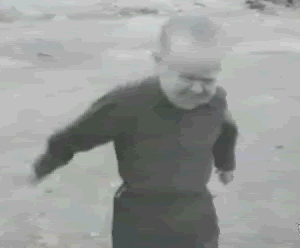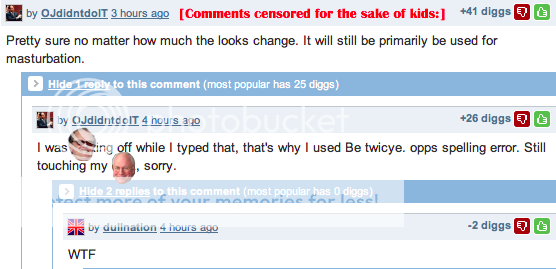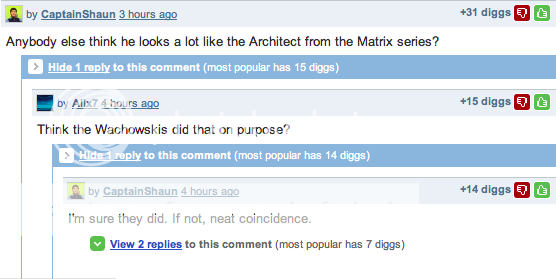It looks like you're using an Ad Blocker.
Please white-list or disable AboveTopSecret.com in your ad-blocking tool.
Thank you.
Some features of ATS will be disabled while you continue to use an ad-blocker.
5
share:
What I've Learned (by Vint Cerf, "Creator of the Internet")
www.esquire.com
(visit the link for the full news article)
"Surf the Web" is a happy coincidence.
You don't have to be young to learn about technology. You have to feel young.
There was no one "Ah-ha!" moment. Not in the sense that many people want to hear. They see the Internet now and think, Well, thirty-six years ago someone imagined what it would look like in 2008, and that is what drove the process. It wasn't like that at all.
When I first joined Google in October of 2005, I was warned that I shouldn't be offended if people were doing their e-mails while a meeting was going on.
There was a first "Oh, no!" moment. That was the first time I saw spam pop up. It could have been as early as '79. A digital-equipment corporation sent a note around announcing a job opening, and we all blew up, saying, This is not for advertising! This is for serious work!
I was disappointed that pornography got to the Net. But I've come to learn that pornographers are almost always the first ones to adopt new technology. If there is a new way of distributing their product, they'll find it.
Will we shoot virtually at each other over the Internet? Probably not. On the other hand, there may be wars fought about the Internet.
Instant messaging and chat rooms have basically created a level playing field for deaf people.
Related News Links:
digg.com
I don't know which of these statements is true: Vint made the internet or Vint works for a living, even though he's a senior-citizen, and he made
the most popular mode of communication since the phone, TV, and radio were introduced to the masses. After reading about all of his well-known
achievements, do any of you think Google (a.k.a. CIA) should be working for him, rather than vice-versa?
Reading these peoples' comments at Digg.com caused me to laugh (because reading causes spontaneous laughter...kidding). Anyway, I hope reading these comments does the same for you:






www.thematrix101.com/reloaded/characters.php


Corporate Information - Google Management
www.esquire.com
[edit on 27-4-2008 by ChadAndrewATS]
Reading these peoples' comments at Digg.com caused me to laugh (because reading causes spontaneous laughter...kidding). Anyway, I hope reading these comments does the same for you:






www.thematrix101.com/reloaded/characters.php


Corporate Information - Google Management
Vinton G. Cerf is vice president and Chief Internet Evangelist for Google. He is responsible for identifying new enabling technologies and applications on the Internet and other platforms for the company.
Widely known as a "Father of the Internet," Vint is the co-designer with Robert Kahn of TCP/IP protocols and basic architecture of the Internet. In 1997, President Clinton recognized their work with the U.S. National Medal of Technology. In 2005, Vint and Bob received the highest civilian honor bestowed in the U.S., the Presidential Medal of Freedom. It recognizes the fact that their work on the software code used to transmit data across the Internet has put them "at the forefront of a digital revolution that has transformed global commerce, communication, and entertainment."
From 1994-2005, Vint served as Senior Vice President at MCI. Prior to that, he was Vice President of the Corporation for National Research Initiatives (CNRI), and from 1982-86 he served as Vice President of MCI. During his tenure with the U.S. Department of Defense's Advanced Research Projects Agency (DARPA) from 1976-1982, Vint played a key role leading the development of Internet and Internet-related data packet and security technologies.
Since 2000, Vint has served as chairman of the board of the Internet Corporation for Assigned Names and Numbers (ICANN) and he has been a Visiting Scientist at the Jet Propulsion Laboratory since 1998. He served as founding president of the Internet Society (ISOC) from 1992-1995 and was on the ISOC board until 2000. Vint is a Fellow of the IEEE, ACM, AAAS, the American Academy of Arts and Sciences, the International Engineering Consortium, the Computer History Museum and the National Academy of Engineering.
Vint has received numerous awards and commendations in connection with his work on the Internet, including the Marconi Fellowship, Charles Stark Draper award of the National Academy of Engineering, the Prince of Asturias award for science and technology, the Alexander Graham Bell Award presented by the Alexander Graham Bell Association for the Deaf, the A.M. Turing Award from the Association for Computer Machinery, the Silver Medal of the International Telecommunications Union, and the IEEE Alexander Graham Bell Medal, among many others.
He holds a Ph.D. in Computer Science from UCLA and more than a dozen honorary degrees.
www.esquire.com
[edit on 27-4-2008 by ChadAndrewATS]
new topics
-
UK Borders are NOT Secure!
Social Issues and Civil Unrest: 17 minutes ago -
Former ‘GMA Producer’ Sues NPR-Legacy Media Exposed
Propaganda Mill: 2 hours ago -
New Footage - Randy Rhoads 1979 LIVE Guitar Solo Footage at the Whisky - Pro Shot
Music: 3 hours ago -
Happy Hanukkah…
General Chit Chat: 3 hours ago -
A Merry Christmas.
General Chit Chat: 10 hours ago
5
